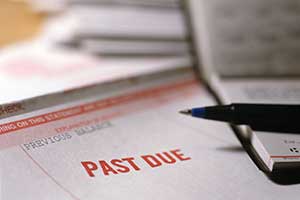
What Bankruptcy Judges Do
Article I, Section 8, of the United States Constitution authorizes Congress to enact “uniform Laws on the subject of Bankruptcies.” In 1978, with this authority, Congress enacted the “Bankruptcy Code,” the uniform federal law that governs all bankruptcy cases. This law has been amended several times.
There is a bankruptcy court for each of the 90 judicial districts in the country. Each state has one or more districts, and the bankruptcy courts generally have their own clerk’s offices. Each bankruptcy judge is appointed for a term of fourteen years.
Bankruptcy judges are the primary administrators of the rules of bankruptcy court. They are expected to:
- Hear all the arguments made within bankruptcy court by attorneys on behalf of petitioners and creditors
- Decide if petitioners qualify for the specific chapter of the Bankruptcy Code
- Sign off on motions and petitions made at various points in the application process
- Grant or deny these motions and approve the claims of creditors following the meeting of creditors
- Decide any matter connected with a bankruptcy case, such as eligibility to file or whether a debtor should receive a discharge of debts
Types of Bankruptcy
The United States Bankruptcy Code provides several ways for individuals to file bankruptcy. The most common types, Chapter 7 and Chapter 13, have several similarities and differences.
Chapter 7: A Chapter 7 bankruptcy has the power to discharge (eliminate) most or all consumer and/or business debts so they no longer have to be paid. Chapter 7 bankruptcy is over in a few months, so you can begin rebuilding credit quickly. If you do not own a great deal of property, your possessions may all be exempt, qualifying you for a “no asset” case.
Your income and debt will be subjected to something called a “means test” to determine if you qualify for Chapter 7. If you are not eligible, filing for Chapter 13 may still be an option.
Chapter 13: With a Chapter 13 bankruptcy, you can repay some or all of your debt affordably over a three- to five-year period. Chapter 13 allows you to consolidate your payments to avoid fees and fines. If you successfully complete the court-approved payment plan, the debts covered by the plan are discharged.
If you are a debtor, your involvement with the bankruptcy judge is usually limited. The debtor and their attorney usually just meet with a Trustee and will not see the bankruptcy judge unless an objection is raised. Chapter 13 debtors may only have to appear before the bankruptcy judge at a plan confirmation hearing.
Ohio Bankruptcy Judges
There are seven judges for the Southern District of Ohio, with offices in Cincinnati, Columbus, and Dayton:
Cincinnati
221 E. Fourth Street
Atrium Two, Suite 800
Cincinnati, Ohio 45202
(513) 684-2572
Columbus
170 North High Street
Columbus, Ohio 43215
(614) 469-6638
Dayton
120 West Third Street
Dayton, Ohio 45402
(937) 225-2516
Contact Us for Support and Guidance
If you have found yourself in a situation where debt is more than you can handle, here’s some good news — there is help available to get you past this crisis and provide the fresh start you need.
The bankruptcy lawyers at Fesenmyer Cousino Weinzimmer are dedicated to helping you through the maze of personal bankruptcy so you can obtain financial freedom. A free initial consultation and careful evaluation of your individual financial situation by the Ohio bankruptcy attorneys at Fesenmyer Cousino Weinzimmer will point you in the right direction and give you the information you need to help you decide.
During your consultation at Fesenmyer Cousino Weinzimmer, we will evaluate your entire financial situation by looking at your income, your debts and your goals, and we will discuss the best fit for your financial situation. We will make sure you are aware of all of your options and help you decide on the path to a brighter future that makes sense in your individual case.
Delaying can only worsen your situation, so call the Ohio bankruptcy attorneys at Fesenmyer Cousino Weinzimmer today! Call one of our conveniently located office branches at 614-228-4435 (Columbus), 937-222-7472 (Dayton), or 877-654-5297 (Cincinnati) or email for your free consultation so we can determine what debt relief solutions will work best for you.


